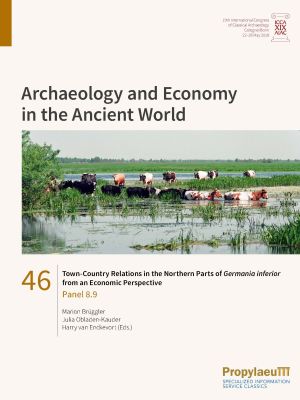Groot, Maaike
Town-Country Relations in the Northern Parts of Germania inferior from an Economic Perspective: Panel 8.9
The province Germania inferior is an interesting candidate for investigating town-country relations. While its southern part borders on the distribution area of oppida, its northern parts had no Iron Age tradition of large settlement agglomerations. Nonetheless, in the Roman period towns were founded here: the Colonia Ulpia Traiana (Xanten) and the municipia Ulpia Noviomagus (Nijmegen) and Forum Hadriani/Municipium Aelium Cananefatium (Voorburg). An important economic agent of the time was the Roman army with its numerous forts along the Lower German Limes. These massive and new agglomerations of persons that were not primarily involved in food production must have posed a challenge to the supply of provisions – in food as well as other commodities.
This panel summarises and compares the town-country relationships in two civitates: the civitas Cugernorum with its capital Colonia Ulpia Traiana and the civitas Batavorum with its capital Municipium Ulpia Noviomagus. What supply strategies for the towns can be discerned? In what way did the primary centres influence the countryside? Are there differences between the civitates? Do they differ from those in the southern parts of Germania inferior? And if so, what are the reasons for it? Another focus are methodological questions, such as : with the data that we have, can we answer these questions? And if that is not the case, what other methods may be applied to gain a deeper insight into this aspect of Roman economy?







